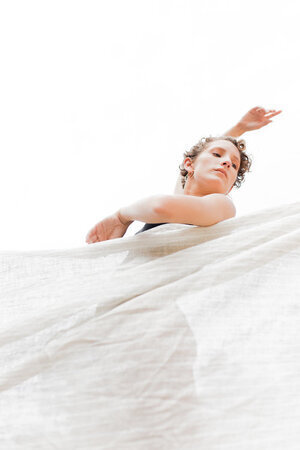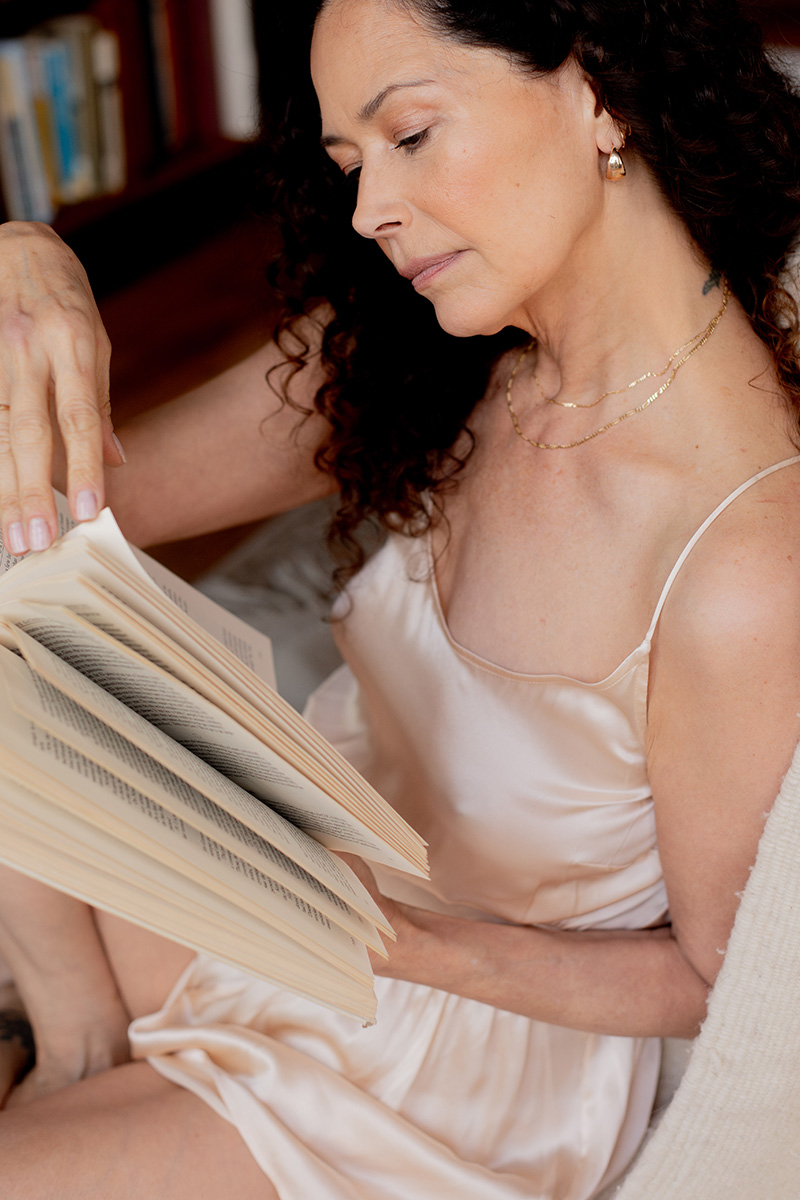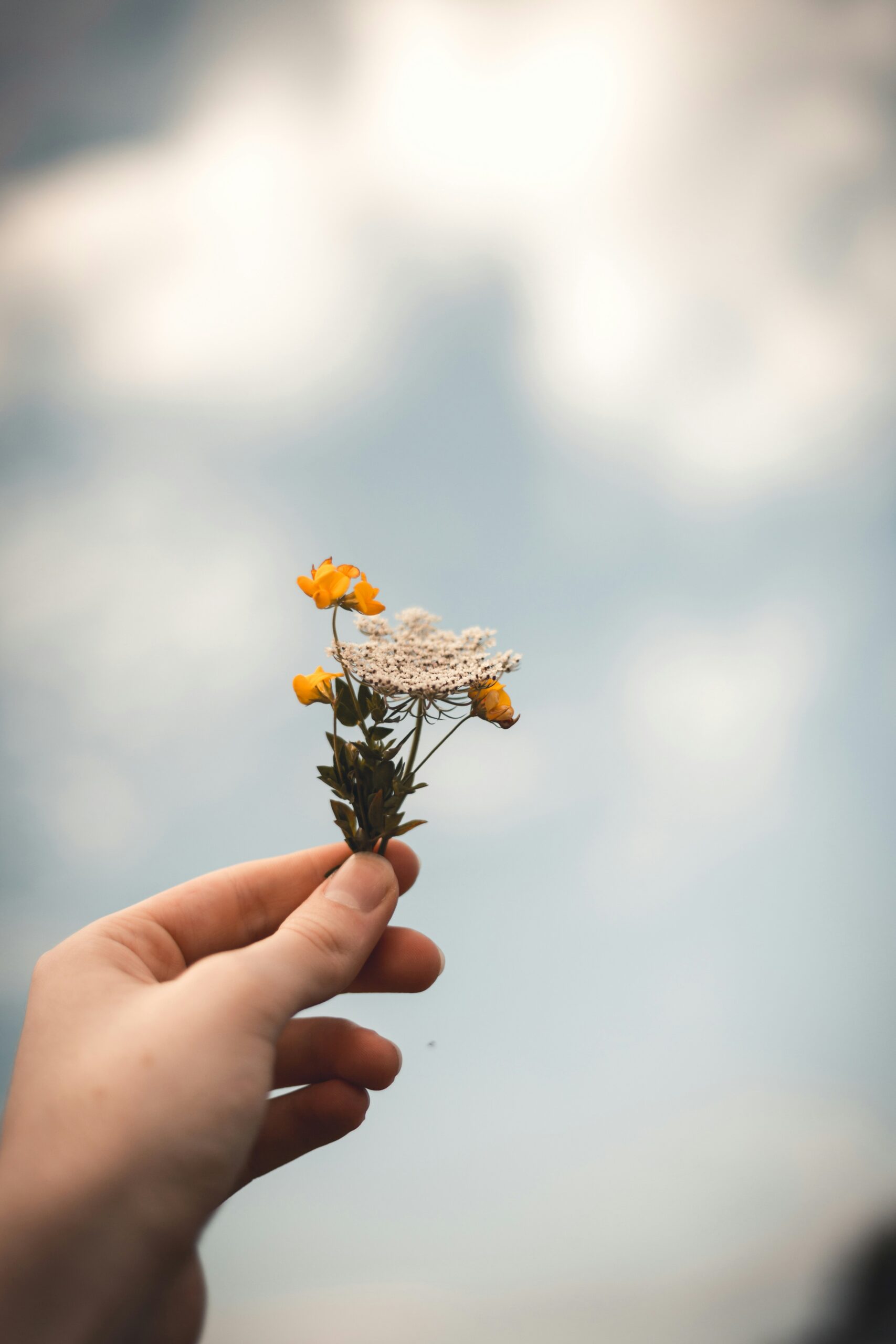
Can You Have Faith When You’re Left-Brained?
I was convinced I had magic powers as a kid, which led to ceremoniously concocting witchy potions and spells with my friends. Later, I read my magazine horoscopes religiously, and as an adult, I’ve become fascinated by astrology, crystals, and signs from the universe.
“Every time I think about what I might have faith in — whether a higher power, nature itself, or my higher self — my overdeveloped left brain barges in with its faithlessness.”
Lately, I’ve been thinking: If I believe in all these magical things, surely I must believe in a higher order of some kind? Surely I must believe in… something like God? But every time I think about what I might have faith in — whether a higher power, nature itself, or my higher self — my overdeveloped left brain barges in with its faithlessness. How can I have faith in something I can’t see or prove exists? What would faith even look like for me, a culturally half-Jewish, half-Christian woman who wasn’t raised religiously? Is my desire for faith just a way to make myself feel better about the more difficult aspects of life?
Throughout my teenage years in France, where practicing a religion is practically taboo and high schoolers take mandatory philosophy classes, I felt almost sorry for religious people — that they needed a safe (and, to my untrained eye, stifling) container to feel up to life’s more difficult moments. I didn’t need God, or prayers, or a set of nonsensical rules. I could handle life all by myself.
“The very concept of faith — which means believing in something regardless of whether you can prove it to be real — is one I struggle to get my head around.”
You can probably guess where I’m going: In my twenties, life has humbled me over and over, and there have been many times when I wished I had a spiritual practice to fall back on. I’m currently in my Saturn return (something I obviously wouldn’t believe in if I weren’t spiritually inclined), and finding faith in whatever form I can feels more pressing than ever. I’ve listened to Gabby Bernstein talk about spirit guides and learned how to interpret angel numbers, hoping to find definitive answers to my existential questions, but this is where I run into problems. I’ve always been more of a thinker than a feeler, and the very concept of faith — which means believing in something regardless of whether you can prove it to be real — is one I struggle to get my head around.
Samantha Vassiliou, a spiritual coach at Aphrodite’s Baby, offers a great starting point for those like me who want to find faith but need tangible evidence upon which to build their beliefs: Working with energy. “Although there isn’t much evidence that God/spirit/higher truth exists, modern science has come leaps and bounds in proving that everything is energy and that we are all connected and affected by this energy,” Vassiliou says. “This is a perfect place to start, and is actually how I started on my own spiritual journey, by exploring the concepts of energy healing and frequencies.”
“Perhaps God isn’t an old bearded man in the sky but the energy moving through all things?”
Practices that seem far out and improbable to some, like Reiki, acupuncture, meditation, earthing, even chakra healing — all of which rely on working with energy in some form — have been proven to have profound healing effects in a wide set of scientific studies. On that basis, going from practicing and believing in energy work to practicing and believing in a higher power feels to me less like a leap and more like a bunny hop. Perhaps God isn’t an old bearded man in the sky but the energy moving through all things? Perhaps intuition isn’t a clairsentient interpretation of the world around us so much as a human propensity to feel into the energy of spaces and people? In this case, both of these concepts become less far-fetched, and more scientific.
As for reconciling logic and common sense (left brain) with belief in an unknown force like God (more or less right brain), it’s not like I’m the first or the smartest to explore those murky waters. Albert Einstein — who was Jewish, at least culturally — was often mistaken for an atheist, but rejected the label. Instead, he professed to believe in a God “who reveals himself in the lawful harmony of the world, not in a God who concerns himself with the fate and the doings of mankind.” Charles Darwin, who had a Unitarian and Anglican Christian background, often reflected on how his theory of natural selection could be consistent with religion, and once wrote that he had “never been an atheist in the sense of denying the existence of a God.” Katherine Johnson was a dedicated Presbyterian throughout her life, despite trading in the very left-brained discipline of mathematics in her role at NASA.
“Who am I to deny myself the comforts of faith just because I also value logic?”
If some of the world’s most renowned scientists couldn’t quite bring themselves to shake their belief in something bigger than themselves, who am I to deny myself the comforts of faith just because I also value logic? Between the post-COVID mental health crisis, the endangered climate, our collective loss of community, tech dependency, productivity culture, racism, transphobia, war, and all of our individual traumas and tragedies, it seems we all need to tend to our spiritual health in this moment — to find a safe place to land, whether through prayer, meditation, community, or study.
Many of us were raised without a religion, while others were raised in a religion that no longer aligns with who they are. Whatever your history, spirituality as I understand it is a deeply personal and healing practice that is open to all. “Let your spiritual journey unfold at its own pace,” says Jack Thweatt, a worship leader and founder of a professional ministry network, Called. “If childhood religion no longer fits, know you can reconstruct faith on your own terms. I think many now seek spirituality as an antidote to chaotic times — but faith also offers timeless truth. My advice is to listen to your soul’s whisperings and let your unique spiritual path guide you home.”
Iris Goldsztajn (she/her) is a freelance writer and editor based in London, UK. Her work has been featured in British Vogue, Marie Claire, Refinery29, SELF, Bustle and many more. Iris can typically be found on her way to a fitness class or with her nose in a good book.



